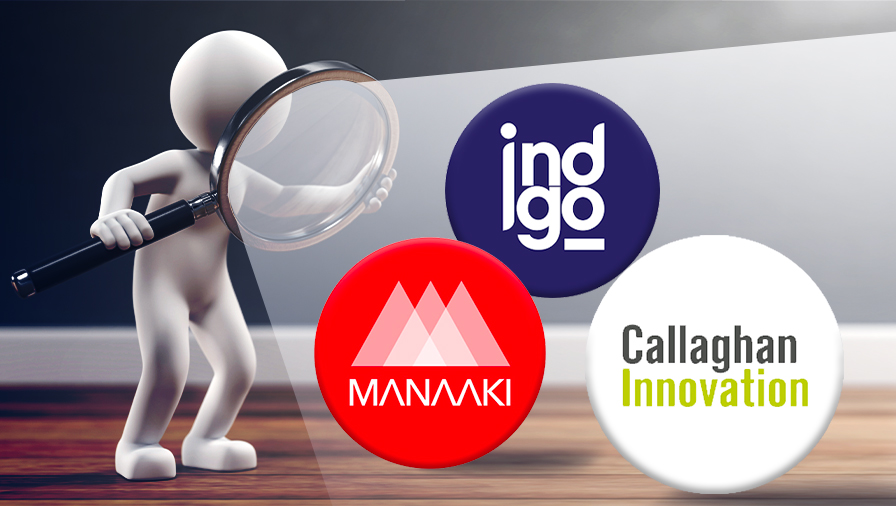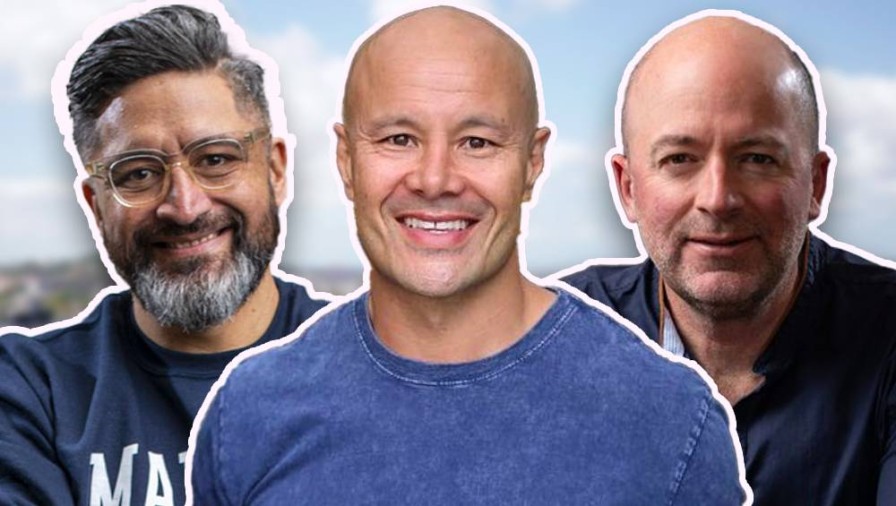We Are Indigo: Vic Crone speaks on why it’s personal
Callaghan Innovation’s former CEO says her own experience of workplace sexual assault shaped her response to the We Are Indigo saga.
Former Callaghan Innovation chief executive Vic Crone.
Callaghan Innovation’s former CEO says her own experience of workplace sexual assault shaped her response to the We Are Indigo saga.
Former Callaghan Innovation chief executive Vic Crone.
Vic Crone is no crusader for the #MeToo movement.
So, when the seasoned chief executive and company director wants to talk about being raped and drugged at work events, she has a profound reason for doing so.
This is a story of a leader with a drive to create safer working environments and pave the way for others to speak up.
As the then-CEO of government innovation agency Callaghan Innovation, it was Crone who took the unusual step of hiring a private investigator to scrutinise the backgrounds of those applying to be providers of its important Founder and Startup Support Programme earlier this year.
Crone has been the missing voice in the ensuing row that has erupted over the decision to decline taxpayer funding for small business advisory group We Are Indigo (Indigo) and its high-profile backers.
Why she made this unorthodox move was no kneejerk reaction to market rumours.
Rather, it was grounded in a deep personal awareness of what it’s like to feel unsafe at work and a motivation to ensure high standards of behaviour around young, often vulnerable entrepreneurs.
The raging firestorm of claims, counterclaims, leaked documents, and official complaints following the Indigo decision has pushed Crone to speak exclusively to NBR about the sexual harassment that has shaped her as a leader.
After nearly 30 years of building success in the business world, she feels it is time for a woman of her standing to come forward, in the hope it will encourage others to do the same.
The fracas has also propelled her, for the first time in her career, to launch legal action against those who have accused her.
A former managing director of Xero NZ, Crone is an accomplished executive who now counts directorships of ASB and Contact Energy and the chair of Stats NZ’s advisory board among her roles.
She apologises, in advance, if she cries while describing the sexual harassment she has experienced during her working life.
In the event, the 49-year-old is measured, studied – the practised professional.
There was the time she was ‘rufie’d’ by a colleague, she says calmly.
A ‘rufie’ is a date rape drug.
“That was at a function we were at in a bar.
“There was, you know, about 12 of us there, and we were drinking and celebrating and things like that.
“I just suddenly started to feel really not good, and so my ‘fight or flight’ kicked in.”
Realising she had to leave, she first went to the bathroom, and then thought she could walk the 10km home.
She has no memory of texting a friend who drove around until he eventually found her lying in a pavement space on a nearby road where she had taken shelter.
It took nearly a week for the effects of the drug to subside.
Crone believes she knows who spiked her drink and was horrified some months later when she was put in a position of having to work closely with him.
At this point she told human resources, who switched her out of the situation.
It is only as she tells the story of being raped by her boss that Crone loses composure for a moment.
She doesn’t want the details published, except to say it was during a social gathering on an overseas trip, and she had to endure the rest of the tour pretending like nothing had happened.
She was going for a promotion within the organisation at the time and, as a solo mother who needed the job, she could not afford to rock the boat.
In fact, she hasn’t felt able to speak about the attack at all until the last couple of years.
But she resolutely does not feel like a victim and doesn’t want to be portrayed that way.
“I’m not the only person who’s been through these experiences.
“What I can do, as having been through them, is identify how others are feeling when they’re put in these situations.
“I know what it’s like to not feel safe for quite a long time.
“I know what it’s like to not be able to speak up because the power imbalance is there. And I know what it’s like to have to work and not have the ability to just leave your job, or the business that you founded, or your passion, and move on when you know someone else is impacting you in quite a severe way.”
While these are the two most serious incidents she recounts, she’s seen the power imbalance in action in myriad more subtle ways.
Like when she was a teenager working in hospitality to put herself through university.
In her first three or four roles she had managers inappropriately hit on her and, in two cases, she left the job because of it.
As women in the workplace, many of us have experienced the ribald comments or unwanted hands, so we understand what Crone means when she says, “that was normalised”.
When she later moved into the tech and innovation sector, she saw plenty of what she describes as ‘grooming behaviour’ – the more powerful senior man showering flattery and expensive dinners on a young female colleague, and later the ghosting and change in the relationship.
“I’ve been groomed a number of times, I’m pretty savvy to it now,” she says.
Many women have shared incidences of workplace sexual harassment with her but, like those who experience any kind of intimidation or bullying, they don’t speak up, she says.
“People who intimidate and bully do spread stories, and especially if those people are senior and have networks, where other people haven't seen that side of them.”
It’s hard for leaders not to turn a blind eye to someone’s behaviour if they’ve known them for years and they don’t present in that way to them.
“For me, that’s where it’s been incredibly important, having that understanding to work on my leadership style and just work to create environments where people are able to speak up if there are things that are happening.
“I’m very lucky, and part of speaking up now is that I’ve got a good career, I’ve got enough behind me to not have to worry about that any more.”
She did not hire private investigation firm Isacorp to look into applicants to Callaghan’s $14 million Founder and Startup Support programme just because of rumours surrounding Indigo/Manaaki, Crone says.
She also makes it clear there have never been any allegations of sexual harassment to do with the firm.
About a dozen people had come to her over a period with talk of poor practices in the innovation ecosystem, from bullying and intimidation through to sexual harassment and a lack of understanding of the domestic workload female founders also carry.
In addition, Callaghan had received a complaint several years ago about bullying by an incubator founder.
Combined with the tragic death last year of 26-year-old Unfiltered founder Jake Miller, Crone was on high alert.
“It was as simple as all the providers that were going to be offering our services, I wanted to make sure that we weren’t putting our entrepreneurs in those situations.”
She talked to her team about lifting the level of due diligence and putting codes of conduct in supplier contracts with the ability for people to speak up.
Using a private investigator is not unprecedented in the public sector, and it is certainly done in the corporate world, she says.
“We decided ... we wanted to pilot an approach, and it was a very cost-effective approach, it didn’t even cost me five figures.”
A subsequent report by EY into Callaghan’s due diligence for the founder programme concluded that it had followed accepted good practice, but that Indigo should have been given the opportunity to respond before the reports were finalised, and only referees with a clear link to the work in question should have been interviewed.
Crone finished her role at Callaghan in June. She embraces the EY report, saying while it confirmed she got it mostly right, there are learnings that she will take forward.
Indigo and its small business community subsidiary Manaaki has always strenuously contended the allegations against it, saying they relate to commercial disputes which have been resolved and the Callaghan Innovation process was conflicted.
It also questions Crone’s right to share the due diligence reports with other agencies, a move that has cost it other government contracts.
Crone announced in a LinkedIn post late last week that she is beginning legal action towards Indigo/Manaaki, and personally against its directors Andy Hamilton, Monty Beetham, and Pat MacFie.
“There’s been a lot of commentary around what has and hasn’t happened,” she tells NBR.
“From my perspective, there is a lot of inaccurate commentary out there, of which the likes of the EY report and other facts are in the public arena to address that.
“And so, I have engaged a legal firm to initiate action for me to address inaccuracies.”
Hamilton has been approached for comment. 
Pat MacFie, Monty Betham, and Andy Hamilton.
In the middle of all this are young entrepreneurs who have been harmed, she wants to remind people.
“Part of me speaking up is to bring that focus right back on founders out there who are struggling with some behaviours, and to put the challenge to the innovation ecosystem to come together and do something about it.
“If you break that word ‘manaaki’ down, it means to nourish, to cherish, and to protect.
“I don’t take that concept lightly; I know what it feels like to not have that around you.
“And so, that’s the world of work that I want, that I’m fighting for – for people now and in the future.
“I think there’s a lot that we can do as individuals and leaders and, whether you’re a director, whether you’re a chief executive, whether you’re a manager, it’s really important in all of those environments, around the board tables, around your executive teams, that you have your eyes wide open to the behaviours going on in your organisations that may be a little bit underground.”
Sign up to get the latest stories and insights delivered to your inbox – free, every day.